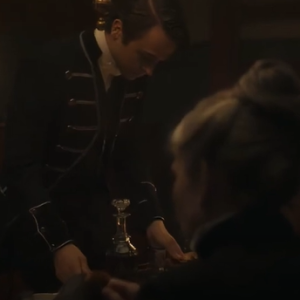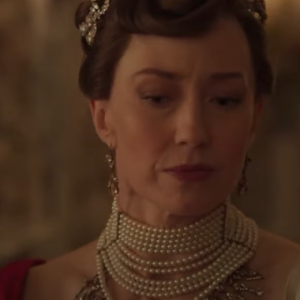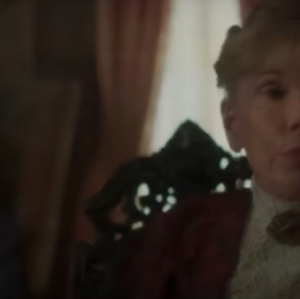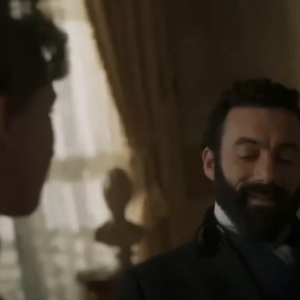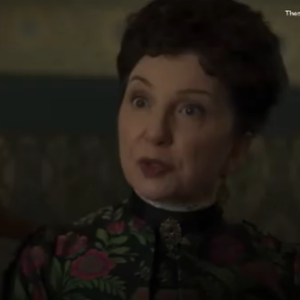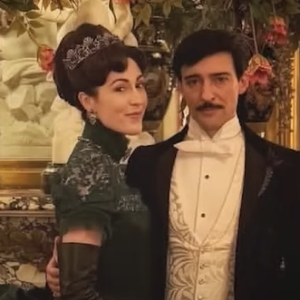The Gilded Age Season 3 Finale: A Drama-Filled Masterpiece of Love, Power, and Uncertainty
Season 3 of The Gilded Age closed with a breathtaking finale that left viewers clinging to their seats and clamoring for more. The tension, romance, and societal intrigue all came to a head in episode 8, forcing nearly every character to confront their deepest desires, gravest mistakes, and shifting futures. At the heart of the drama was George Russell, clinging to life after being shot, and his formidable wife Bertha, who found herself for once paralyzed not by ambition, but by fear. The roles these two have played all season—as master manipulators of power and image—began to shift dramatically. Bertha, usually a stone-cold architect of social domination, was emotionally cracked open. The desperation in her eyes, the pain in her voice, all reflected a woman not scheming for status, but genuinely terrified of losing the man she loves. Her threat to cancel the Newport ball was less about strategy and more about human emotion. And yet, George, though recovering, refused to allow her to falter—positioning the ball as a symbol of continued strength, not just for her, but for the image of their railroad empire. Ironically, George ended up using the ball for his own calculated display of recovery, flipping the script and adopting Bertha’s playbook. And for once, she hated being the pawn.
The ball became the centerpiece of power plays, societal reckoning, and emotional revelations. Bertha’s decision to lift the ban on divorced women attending was a progressive move cloaked in controversy. It positioned her as a future-facing force in high society—but potentially at great personal cost. That choice, made while George lay injured, may become the very wedge that drives them apart in season 4. Bertha’s stand for inclusivity—on paper noble—could isolate her from the very man who once admired her ruthlessness, but no longer tolerates her disregard for emotional consequences. Meanwhile, George’s near-death experience has given him a new lens: one that views ambition as a weapon too often turned on loved ones. His guilt over letting Glady marry Hector despite her resistance haunts him, and in that guilt, he questions whether Bertha’s influence has become too toxic for his family. Their marriage, once an unshakable union of dominance and desire, now feels fractured. And in the haunting final moment, Bertha stares out the window as George departs for New York, carrying the heavy secret that Glady is pregnant—an unshared truth that hints she may face next season alone.
While George and Bertha’s empire trembled, love stories across New York flickered into hope—or heartbreak. Peggy’s storyline unfolded as one of the most emotionally charged arcs this season, with her heart caught between personal trauma and a man unprepared to fight for her. The expected proposal from Dr. Kirkland twisted into a confrontation about her past, egged on by his manipulative mother. The silence between them, as hope drained from Peggy’s face, was louder than any accusation. But the tides turned. Dorothy, Peggy’s mother, stood her ground in a fiery showdown with Mrs. Kirkland, refusing to let classism and racism define her daughter’s worth. Even Dr. Kirkland’s father stepped up to defend Peggy’s honor, urging his son to prioritize love over society’s judgment. Eventually, he did. In a romantic redemption arc, Dr. Kirkland proposed to Peggy properly, not just to prove his love but to declare it to the world. The joy on Peggy’s face—the long-overdue recognition of her value and triumph—was a season highlight, offering her the ending she deserved. It wasn’t just a happy ending, it was a battle hard-won.
Parallel to Peggy’s growth was Marian’s path to clarity and emotional honesty. Her relationship with Larry was strained after her mistrust over the Haymarket incident, and rightfully so. Larry, devastated by his father’s condition, had no patience for misplaced doubt. Yet, Marian’s guilt and her heroic act—helping save George’s life—rekindled a respect Bertha could no longer ignore. Larry and Marian’s eventual reconciliation wasn’t about sweeping gestures; it was about realism. Their dialogue about making mistakes together because that’s what life is felt refreshingly grounded. No fairy tales, no grand illusions—just two people committing to figure it out together. After seasons of setbacks, their mutual decision to face future uncertainties side by side marked a welcome evolution in their arc. It was a quiet kind of drama—less explosive, but deeply emotional. Their slow-burn romance, once marred by pride and miscommunication, finally earned its hopeful trajectory, and fans can now look forward to what seems like an inevitable wedding next season.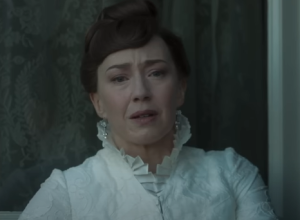
Beyond the romantic entanglements, the van Rhijn household also underwent a quiet but powerful transformation. Ada and Agnes, locked in a season-long struggle for authority, found balance in the finale. Agnes, proud and rigid, was finally humbled when she discovered that the New York Heritage Society didn’t want her money, but her name—exposing a rare moment of vulnerability. Ada’s triumph wasn’t loud, but symbolic; she was finally allowed to sit at the head of the table, and that single gesture—accompanied by Agnes’s rare wink—signaled a thaw in the icy dynamic between the sisters. Meanwhile, Oscar van Rhijn’s arc took a bold new turn. No longer mourning John Adams, Oscar repurposed his heartbreak into ambition, proposing a marriage of convenience to Mrs. Winterton. It was a calculated move—power and money fused in mutual understanding. Both had homes outside the city, both craved societal validation, and both were willing to play the game. Their partnership might lack romance, but not strategy. Oscar’s newfound confidence, his clarity about his place in the world, makes him more dangerous—and more compelling—than ever.
As the curtain falls on The Gilded Age Season 3, it’s clear that the series has evolved beyond a mere costume drama. It’s become a chessboard of emotions, strategy, and shifting social mores. The finale delivered high-stakes drama without compromising emotional depth. From George’s collapse and resurrection to Bertha’s unraveling grasp on her family, from Peggy’s triumph to Oscar’s resurrection, every thread wove into a tapestry of tension and transformation. With Season 4 confirmed, the show now sits on the precipice of redefining its characters’ futures. Will George and Bertha survive as a couple or collapse under the weight of their own ambition? Will Peggy finally live freely and boldly in a love that once seemed unreachable? Can Larry and Marian hold onto their fragile reconciliation? The answers lie ahead, but one thing is certain: The Gilded Age is no longer just about the past—it’s about how these characters dare to reshape their futures, no matter the cost.
